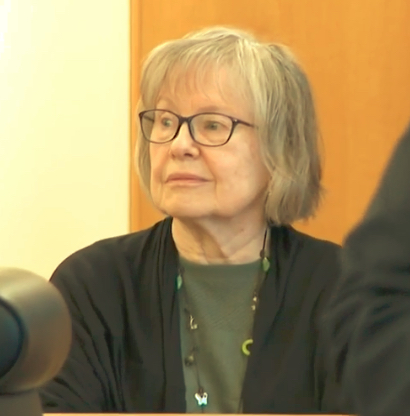Special to InDepthNH.org. Story by Carol Robidoux, founder and editor of Manchester Ink Link, a favorite source of independent news and information for Manchester.
By Carol Robidoux,
Manchester Ink Link
MANCHESTER, NH – We are a city at war. Over the past three years we’ve seen a dramatic rise in the need for reinforcements to attend to our dead and wounded. Since 2014 we have buried 1,315 of our own due to confirmed drug overdoses. They are our sons and daughters, mother and fathers, sisters and brothers.
Five years ago the drug death toll in New Hampshire was 163, according to the State Medical Examiner’s office. In 2016, there were 477 confirmed drug deaths – nearly a 193 percent increase. Last official count for 2017 was 73.
Opioid addiction – which exploded due to the prevalence of prescription pain pills, then heroin, now fentanyl and carfentanil – has taken hold here. Like a shape-shifting nemesis, it continues to beguile those in the trenches who are the healers – our first responders, our medical community, social workers and addiction counselors.
We seem to know what’s needed. It’s almost too simple, when you break it down on paper.
Supply, demand, and investment in lasting solutions.
If we’re going to get beyond this scourge of deadly drugs, we need to cut off the supply. We need to put an end to the demand. We need to create pathways to healing, beginning with detox and treatment, and expanding to long-term community recovery resources.
So far, it’s been difficult to get past the barriers. There is a minefield of pitfalls and hazards – lack of insurance, Medicaid constraints, not enough short- and long-term options to get those who are seeking help connected to the right resources that will help see them through.
Money is not the problem. It’s flowing into New Hampshire for the purpose of treatment, services, programs and hiring qualified Licensed Alcohol Drug Abuse counselors. In March the New Hampshire Governor’s Commission on Alcohol and Other Drug Abuse Prevention, Treatment and Recovery set forth a spending strategy for 2017 that allocated nearly $6 million for priority spending on everything from clinical treatment to technical services.
But millions of that money has not been spent, according to Commission Chair Tym Rourke, leaving NH with an ambiguous surplus estimated somewhere between $2-4 million, primarily due to “workforce issues.”
So why are we stuck, and how do we make real progress?
Those were questions left on the table following a May 30 community forum held at the city Health Department. Connecting the Dots: Mental Health & the Opioid Crisis sponsored by New England College brought together a panel to lead the discussion, and drew about 40 members of the community.
Panelists included city Health Directory Tim Soucy; Rik Cornell, a clinical therapist from the Mental Health Center of Greater Manchester; Meghan Baston, Director of Behavioral Health from Elliot Health System; Paul Dann, program director of New England College‘s masters program for Clinical Mental Health Counseling and Executive Director of NFI North, a behavioral health organization; Dr. William Goodman, Chief Medical officer for Catholic Medical Center; Jenny O’Higgins, of Makin’ It Happen Coalition; and Stephanie Bergeron of Serenity Place.

Panelists Stephanie Bergeron, left, Executive Director of Serenity Place, and Jenny O’Higgins, of Makin’ It Happen Coalition for Resilient Youth.
After the session, Paul Dann elaborated on the pivotal “workforce issues” component, namely the lack of certified counselors at all levels, on which treatment and recovery – and expenditure of earmarked state and federal dollars – depends.
According to an August 2016 report by the state Department of Health and Human Services, the most critical puzzle piece is the current shortage of Master Licensed Drug and Alcohol Counselors and Licensed Alcohol and Drug Counselors statewide, along with a shortage of clinicians trained in co-occurring mental disorders.
The biggest barrier? The state board that licenses these professionals, in particular, the process it requires, identified in the report as “complex, unclear and cumbersome.”

“We want to be part of the solution,” says Dann, on behalf of New England College’s Preferred Partner Program, which aims to streamline the process of shepherding qualified clinicians into the field.
“Let’s go to the mental health centers and invite them to be partners, and craft a program that has low barriers and easy access for those who want to become MLADCs,” Dann says.
Through NEC’s Preferred Partners Program, the college sends faculty to existing organizations to teach the required coursework. It’s a system already in place at some outposts around the state, including the Center for Life Management in Derry, and Genesis Behavioral Health in Laconia. But after 20 years, the college is trying to ramp-up the program to help meet demand by increasing the number of clinicians.
“Right now the funding sources are very siloed,” says Dann, again, addressing existing barriers of treatment that extend beyond addiction treatment to include co-occurring mental health diagnoses.
A secondary barrier to breaking the cycle of Substance Use Disorder (SUD) is the statewide lack of housing for those struggling with addiction. There is a critical need for emergency housing and/or safe and supportive housing where someone can stay while waiting to receive treatment services, or remain while they gain the life and work skills required to get back to a productive life. But the lack of available staffing trained in mental health, SUD and co-occurring disorders has clogged the recovery pipeline. In addition, the NH DHHS also identified the lack of transitional housing, especially housing for women, youth and families and sober housing that supports recovery.
The conclusion: Affordable and accessible permanent housing options are limited for everyone – including those coming out of prison with unresolved substance use disorders, who are at highest risk for re-incarceration.
After more than an hour-long discussion, the group went away with more information about a new initiative, Community Compass, part of the Greater Manchester Region’s plan for bridging gaps in service and extending a continuum of care.
“There are many entry points to services now,” says city Health Department director Tim Soucy. Safe Station, initiated in 2016, is probably the most efficient way because of its symbiotic relationship with Serenity Place, a non-profit community-based behavioral health treatment agency offering inpatient and outpatient and referral services to individuals and families. [Community Compass is a publication available through the health department, and is also downloadable from an online version, included at the bottom of this story.]

One creative response to access has been the Mental Health Center of Greater Manchester’s Mobile Crisis Response Team (MCRT), which is deployed in the field to crisis calls, and can eliminate the need for waiting in a hospital emergency room to connect those experiencing a mental health crisis with services.
Travis Statler, an MCRT peer specialist, said identifying the problems connected to lack of treatment providers and how money is allocated by the state remains a reality that will not be quickly or easily resolved. He prefers to live in a world of solutions rather than being bogged down by barriers. His work with MCRT has been a bright spot for the community.
“It’s great that we’re improving regional access, but I feel like the individual players involved, all our separate agencies, need to come together so everyone has a voice,” Stetler says. “That’s when people in need of care will get the most effective treatment. The best thing about the mobile unit is that we are helping fill the gap.”
Clinicians through MCRT are on call 24/7, 365 days a year. Anyone can call for help by dialing 1-800-688-3544, says Lindsay Harden, an MCRT clinician. As a facet of the region’s mental health system, the mobile unit crew is equipped to handle everything from suicidal thoughts and substance use disorder crises, to children in unsafe conditions – including interventions during police calls, where mental health issues are suspected.
“The goal is to try and prevent unnecessary incarceration or hospitalizations. You can go to the emergency department and wait for someone to get to you, or you can call us,” Harden says.

In the meantime, the overall cost of this drug crisis is taking a heavy toll. Lives are lost, families are shattered and, according to a report released in May by New Futures, the state’s business engine is in jeopardy of seizing-up due to the related economic stressors. New Futures estimated that in 2014, it cost New Hampshire $2.36 billion in lost productivity, health care and strains on the criminal justice system – up more than $50 million from the two previous years.
“While our updated economic report shows the cost of substance misuse on our state has significantly increased over the past two years, it is important to remember that this total number is as of 2014, prior to the height of the epidemic, and does not include the $604.6 million in costs related to premature deaths – deaths that could have been preventable. There is no price we can place on the lives lost and the countless number of Granite Staters impacted by this epidemic thus far,” says Linda Saunders Paquette, President and CEO of New Futures.
Perhaps the most persistent barrier to making headway is stigma. Sandy Pascucci, who attended the forum, said she is heartened by the change in culture she witnessed at Elliot Health System, while there waiting with someone in the Emergency Department who was trying to get into treatment.

“It was just a matter of coordinating the three other people who were in the pipeline to go to Cypress Treatment Center, because they have to stagger them. I watched your head nurse in that emergency room handle the situation, how she dealt with the real medical challenge, how she had hospitality for people with mental health behaviors,” Pascucci said, directing her comment to Meghan Baston of the Elliot.
“That area of the waiting room was full, by the way. In a perfect world, someday, a person won’t have to go to the emergency room for medical clearance to go to a place like Cypress. But as someone in long-term recovery myself, it really was a joy to see that progress, because not too long ago in most emergency rooms it was a very negative experience. This is something that all of us dealing with addiction recognize, that addiction is a disease and we need to treat people with compassion. It’s a message we need to continue to spread to get past the stigma,” Pascucci said.
Bergeron says one component would be for businesses to help reduce the stigma by investing in their workforce. Health providers in New Hampshire are ready and willing to work with businesses to help them shift the culture of stigma in the workplace to one of support and understanding, Bergeron says.
“We have 15 people right now in our WRAP program that I can think of who, with just some on-the-job training, could be the best employees you ever had in your life,” Bergeron says.
“We have to make those connections. And I’m not just thinking about the professional workforce shortage. I’m thinking broadly of the workforce shortage that’s going to happen due to the generation we’ve lost to this epidemic. Let’s invest in the people we still have, as morbid as that sounds, the people who are maybe starting over or willing to try something new. Why not find a way to invest in people who want to enter our world (as service providers) who have a value and a different perspective, instead of pigeon-holing people as to what their limitations or abilities might be. In the business world, when you’re trying to make a profit, that community around you should be thriving,” Bergeron says.
As the conversation now continues, panelists agreed that engaging the business community in public-private partnerships that get everyone on the same page – focusing on solutions – is the way forward.
“It takes courage on the part of all the businesses to decide to give people a chance, or a second chance. It’s about having the courage, to talk about these issues if they’re our own, or with our kids and families, and within our own social circles, to break down the stigma,” says panelist Meghan Baston. “We have to feel courageous enough to break down that stigma.”






